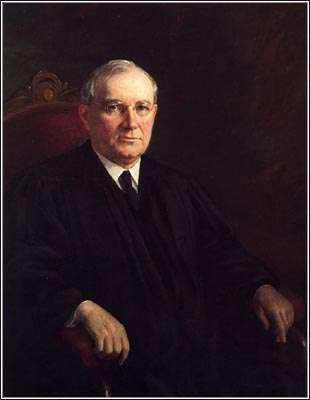The Volokh Conspiracy
Mostly law professors | Sometimes contrarian | Often libertarian | Always independent
Today in Supreme Court History: January 2, 1923
1/2/1923: Justice Pierce Butler takes oath.

Editor's Note: We invite comments and request that they be civil and on-topic. We do not moderate or assume any responsibility for comments, which are owned by the readers who post them. Comments do not represent the views of Reason.com or Reason Foundation. We reserve the right to delete any comment for any reason at any time. Comments may only be edited within 5 minutes of posting. Report abuses.
Please to post comments


Rochin v. California, 342 U.S. 165 (decided January 2, 1952): Defendant vomited out two capsules of (illegal) morphine at hospital after being force-fed an emetic. After police broke into his house and dragged him there. All this without a warrant. Yeah, Due Process (“shocks the conscience”) violation. Capsules should have been suppressed, conviction vacated. No dissents.
Kiefer-Stewart Co. v. Joseph E. Seagram & Sons, 340 U.S. 211 (decided January 2, 1951): distillers’ agreement to set prices above which wholesalers could not resell violated Sherman Act (overruled by Copperweld Corp. v. Independence Tube Corp., 1984, to the extent that a parent corporation can’t be said to conspire with its affiliate)
Cincinnati, New Orleans & Texas Pacific Ry. Co. v. Bohon, 200 U.S. 221 (decided January 2, 1906): wrongful death suit against railroad and its employee can’t be split for the purposes of removing the suit against the railroad on basis of diversity; it’s an inseparable controversy (this was before the Federal Employers Liability Act, which created vicarious liability and made suing the employee separately unnecessary)
A few years after the Bohon case states started passing workmen's compensation laws, removing the requirement to prove negligence in return for lower limits on compensation. According to one web page, such laws were adopted at the state level from 1911 to 1948.
Thanks
It's fashionable on the Right to say there's no such thing as substantive due process. I often use Rochin as the example to show why that is wrong.
What process is due for a parking ticket? A hearing before some sort of neutral officer.
What process is due for throwing you in prison for life? A full jury trial with a panoply of constitutional protections, plus at least one level of appellate review as of right.
What process is due before the government can force feed you an emetic and force you to vomit? Answer: that is unacceptable no matter how much process you are given. And "this is unacceptable under any level of process" is what substantive due process is.
If this is what substantive due process is about then thanks for this simple explanation
And Prof. Bernstein has written here before that this is not some newfangled Earl Warren invention; this is actually how it was understood at the time.